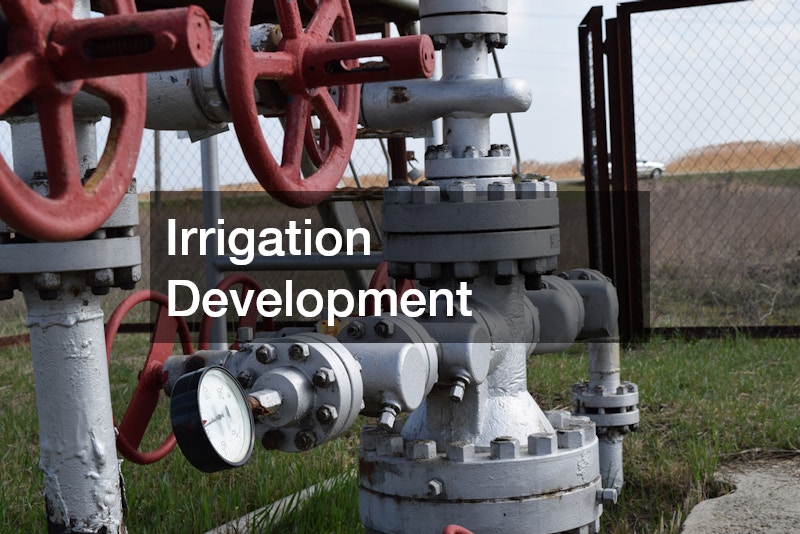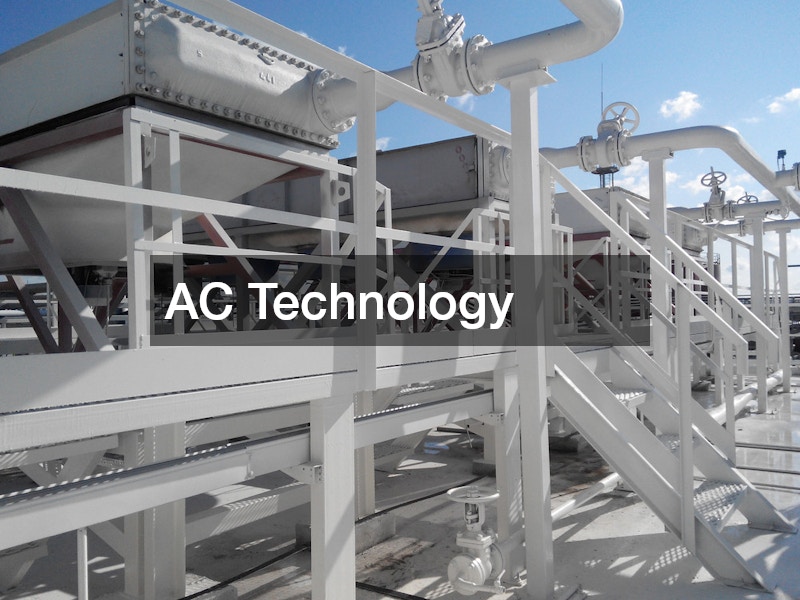In today’s fast-paced world, where technological advancements continue to reshape industries at a remarkable and unprecedented rate, the importance of industrial product development cannot be overstated. From high performance water and air filters designed to ensure cleaner environments to innovative plumbing and drainage solutions that enhance water management systems, numerous sectors are seeing the positive impacts of these state-of-the-art developments. As manufacturers work tirelessly to meet the ever-evolving demands of consumers and industries alike, the integration of cutting-edge technologies and advanced materials is resulting in the creation of more efficient, environmentally sustainable, and durable products.
This article embarks on an in-depth exploration of a broad range of industries, shedding light on the immense significance of industrial product development and examining the crucial innovations driving these advancements forward. We take a closer look at topics such as the application of highly activated carbon within filtration systems, the expertise of gutter installers in upholding critical infrastructure, and the role of hydro excavators in facilitating modern and precise soil removal. Join us as we delve into the intricate and fascinating developments unfolding across various sectors, revealing how these advances are setting new standards and shaping the future of industrial products across the globe. Through this journey, we aim to unravel the complex and dynamic interplay of technology and industry, offering insights into the forward-thinking solutions that are continuously enhancing the products on which modern society relies. Read on to learn about the process involved in industrial product development and how the process is used on industrial job sites.
Water and Air Filters

Water and air filters play an essential role in maintaining the health and safety of environments, both domestically and industrially. The incorporation of high activated carbon in these filters has revolutionized their effectiveness, significantly improving their ability to capture and neutralize pollutants. This innovation is a testament to the impact of industrial product development, which continuously seeks to enhance product performance and meet higher safety standards.
The demand for high-quality air and water filters has spurred industrial product development to explore new materials and designs. One notable advancement is the integration of high activated carbon in filter structures, providing superior absorption capabilities compared to traditional materials. As industries expand and regulatory standards for environmental protection increase, this development ensures that filters remain effective against an evolving array of contaminants.
Moreover, the realm of industrial product development extends beyond merely improving filtering capabilities; it aims to create sustainable and cost-effective solutions. By leveraging materials like high activated carbon, manufacturers can offer filters that not only perform better but also last longer, reducing the need for frequent replacements. This not only benefits the consumer economically but also lessens environmental impact by minimizing waste.
Gutter Installations
Ensuring proper water management and drainage around buildings relies heavily on effective gutter installations. Professional gutter installers play a crucial role in designing systems that prevent water damage, thereby preserving infrastructure. Through innovative industrial product development, modern gutter systems are now more efficient and durable than ever before.
Gutter installers have increasingly turned to industrial product development to address challenges such as obstructions, leaks, and deterioration. Materials and techniques have evolved to provide solutions that extend the lifespan of gutter systems while maintaining highest functionality. This progress underscores the importance of innovation in tailoring products that align with specific structural and environmental needs.
Industrial product development also emphasizes the importance of aesthetic considerations in exterior building design. Gutter systems need to blend seamlessly with architectural styles, particularly in residential settings. Consequently, product developers have focused on creating components that offer both functionality and visual appeal, enhancing curb appeal without compromising on performance.
Plumbing Innovations
Plumbing systems are the backbone of modern civilization, providing essential water management services. Innovations such as advanced cesspool pumping solutions have emerged from intense industrial product development efforts aimed at increasing efficiency and reliability. With these advancements, plumbing services can now offer more dependable solutions to meet the demands of expanding urban environments.
Cesspool pumping, a critical procedure in wastewater management, has benefited immensely from industrial product development. New technologies offer more precise and efficient removal of waste, ensuring environmental safety and compliance with health standards. This progress highlights the importance of continuous improvement within industrial product development to meet evolving infrastructure demands.
In addition to performance enhancements, modern plumbing innovations consider environmental sustainability and resource preservation. By reducing energy consumption and optimizing waste processing techniques, these solutions reflect the industry’s commitment to safeguarding natural resources. Industrial product development continues to push the envelope in creating systems that are both ecologically and economically viable.
Irrigation Development

Efficient water usage in agriculture is paramount, and irrigation installation plays a key role in optimizing said use. Industrial product development has driven significant innovations, featuring advanced systems that ensure precise water distribution and reduce wastage. These innovations have greatly enhanced agricultural productivity and conservation efforts globally.
Irrigation installation has evolved through the integration of cutting-edge technologies that respond to dynamic environmental conditions. Automated and remote-controlled systems, developed through industrial product development, offer unprecedented control over irrigation, ensuring optimal water usage aligned with crop requirements. This is crucial in regions facing water scarcity and irregular climate patterns.
The continued development of irrigation systems also underscores a commitment to advancing sustainability and efficiency in agriculture. By optimizing water use, these systems mitigate waste and enhance crop yield, proving the multifaceted benefits of concerted industrial product development. This focus not only supports farms in achieving greater productivity but also fosters environmental stewardship across agricultural industries.
Heating Oil Process
The delivery and management of heating oil are paramount for many households and industries, especially in colder climates. Local heating oil delivery services depend heavily on innovations in industrial product development to provide efficient and reliable solutions. These advancements ensure that consumers receive uninterrupted heating services during the crucial winter months.
Advancements in local heating oil delivery are underpinned by improvements in logistics, storage, and delivery mechanisms. Industrial product development has enabled companies to design more efficient routes and delivery systems, reducing timeframes and ensuring consistent supply to customers. Such innovations are crucial to meeting the increasing demand for heating services in a timely manner.
The environmental impact of heating oil is another area where industrial product development has made significant strides. By introducing cleaner burning oil options and optimizing delivery methods, the industry contributes to reduced carbon emissions, aligning with global efforts towards sustainability. This progression highlights the dual role of innovation in enhancing service provision and supporting ecological goals.
Stormwater System Maintenance
Stormwater systems are vital for managing runoff in urban environments, helping prevent flooding and waterlogging. The need for efficient maintenance of these systems has catalyzed numerous advancements in industrial product development. By leveraging the latest technologies, modern stormwater management ensures optimal operation and longevity of these critical infrastructures.
With urban expansion, the complexity and demand for effective stormwater systems have grown. Industrial product development has responded by developing advanced materials and techniques to improve durability and efficiency, reducing maintenance frequency and enhancing system reliability. This is crucial in urban areas prone to sudden heavy rainfall and flooding.
The advancements in stormwater management also stress the importance of integrating green infrastructure solutions. By incorporating features that mimic natural water cycles, developers are enhancing system effectiveness while contributing to sustainability. These innovations underscore the pivotal role of industrial product development in addressing urban water challenges through environmentally conscious solutions.
AC Technology

The field of air conditioning has seen remarkable technological advances, with AC repair services adapting to address ever-complex systems. In this domain, industrial product development is pivotal in crafting durable, efficient systems that cater to diverse climate needs. With growing emphasis on energy efficiency, the role of innovative AC technologies becomes even more pronounced.
AC repair services benefit greatly from industrial product development endeavors focused on enhancing system performance and user convenience. The advent of smart cooling systems, which allow for precise temperature control and monitoring, exemplifies the intersection of technology and consumer demand. These systems not only provide comfort but also contribute to energy conservation.
Furthermore, the drive towards sustainability has prompted significant developments in the materials used in AC systems. By exploring eco-friendly refrigerants and components, product developers aim to minimize environmental impact while maintaining efficiency. These innovations are testament to the critical role of industrial product development in achieving sustainable cooling solutions.
Soil Removing
Hydro excavators are revolutionizing how industries approach soil removal, providing a safer and more precise method compared to traditional mechanical excavation. The emergence of this technology is a direct result of focused industrial product development, which continues to innovate solutions that prioritize safety and efficiency in soil excavation practices.
The use of hydro excavators exemplifies how industrial product development addresses industry challenges by providing efficient alternatives to conventional methods. This technology reduces the risk of damaging underground utilities and increases excavation precision, making it ideal for projects in densely built urban areas. As urban development continues, such advancements are crucial for maintaining infrastructure integrity.
Moreover, hydro excavators have a reduced environmental impact, aligning with broader sustainability goals. Industrial product development efforts have led to equipment that minimizes disruptions to existing ecosystems while enhancing excavation capabilities. These advantages position hydro excavators as invaluable tools in construction and environmental restoration projects.
Transmission Rebuilds
The complexities of modern automotive systems demand high precision in repair and maintenance tasks, including manual transmission rebuild. Industrial product development has propelled advancements in transmission technologies, resulting in more efficient, reliable, and easily serviceable units. These innovations strengthen the role of skilled professionals in maintaining vehicle performance.
Manual transmission rebuild benefits from improved component design and materials, outcomes of rigorous industrial product development. These enhancements facilitate easier assembly and disassembly, reducing repair times and labor costs. Additionally, this progress contributes to the longevity and reliability of transmissions, ultimately enhancing vehicle dependability.
The push for environmentally friendly vehicle technologies has also influenced transmission rebuild practices. By incorporating advanced materials and techniques into their design, developers aim to reduce emissions and energy use during the manufacturing and maintenance processes. This reflects a holistic approach within industrial product development, balancing performance with sustainability.
New Electrical Panels

The changing landscape of electrical demands necessitates the installation of advanced electrical panels. Electrical panel change out service has benefited immensely from industrial product development, resulting in panels that not only accommodate more circuits but also offer increased safety and efficiency. These innovations ensure electricity distribution systems can keep pace with contemporary needs.
Advanced electrical panels incorporate features that anticipate future electricity consumption trends, supporting emerging technologies like renewable energy integration and smart home devices. Such foresight in product design is a hallmark of effective industrial product development, which anticipates market demands while ensuring safety and reliability.
Additionally, modern electrical panels require less maintenance and provide longer service life, reflecting improvements in material choice and system design. This results in cost savings for consumers and less frequent disruptions, emphasizing the holistic benefits driven by industrial product development in power management systems.
Industrial product development plays a pivotal role in advancing technologies across various sectors, yielding innovations that align performance, sustainability, and consumer demands. As evident in fields ranging from filtration systems utilizing high activated carbon to advanced AC repair technologies, the drive to push the boundaries of what’s possible is a constant. This relentless pursuit has led to products that not only meet but often exceed the needs of modern society.
Each advancement delineated in the article underscores the significance of ongoing research and development in shaping the future of industrial systems. By addressing challenges such as environmental sustainability, efficiency, and cost-effectiveness, industrial product development continues to secure its position at the forefront of industry advancement. This ensures that products remain relevant and beneficial in an ever-evolving global landscape.
Looking forward, the scope of industrial product development seems boundless, with much potential to further revolutionize industries and improve quality of life worldwide. Continued innovation and a focus on sustainable practices will undoubtedly foster transformative changes, enabling industries to establish a harmonious balance between progress and environmental conservation.
